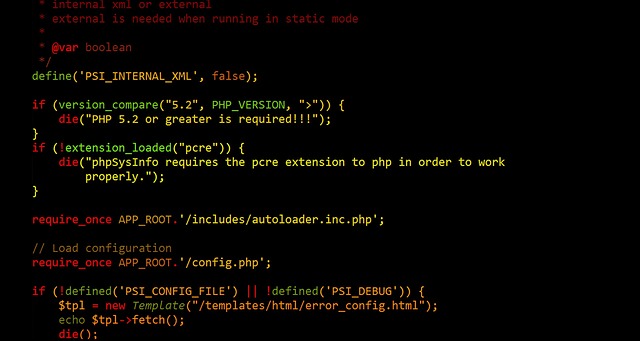Are you looking for a career change, or considering a switch from employment to self-employment? Have you ever wondered what it takes to become a successful software consultant? Perhaps you’ve been looking for a way to get your foot in the door and make a name for yourself in the software consulting world?
Software consulting is an extremely competitive and fast-paced field which is burgeoning with new opportunities. Yet many people are unaware of how to break into this sophisticated and ever-changing industry. Recent studies by McKinsey have shown that businesses are increasingly turning to software consultants for their expertise and partnership in promoting digital transformation. In addition, software consultancies have seen an intensified pressure to rapidly adopt new technologies to stay competitive in an increasingly global market.
In this article, you will learn the essential steps of becoming a software consultant. You will understand the differences between a traditional software developer and software consultant. When it comes to acquiring the necessary skills, credentials, and business acumen to become a successful software consultant, there are several considerations to think about. We will cover topics such as the importance of education and certifications, developing the relevant skills and experience, preparing to enter the consulting world, and the importance of having a strong support network. Afterwards, we will discuss how to become a successful and sought-after software consultant.
Now once you have decided to become a software consultant, the next step is to acquire the right credentials. Depending on the type of software consultancy you are aiming for, you may find yourself needing to acquire or attain certain qualifications and certifications. Certification and other forms of accreditation are essential in attracting high-level consulting clients. Consider studying and obtaining popular industry certifications such as for Java, Python, Cloud Technologies, and JavaScript, depending on your skill set and the type of software consulting you are interested in.
Definitions of Becoming a Software Consultant
A software consultant is an individual or firm that consults in the development, implementation, and improvement of software solutions. They advise on how to best leverage software-based resources to achieve an organization’s goals. Software consultants apply their technical and business knowledge to solve a wide range of software issues and to design new systems. They must possess excellent analytical, problem-solving, and communication skills, as well as a comprehensive understanding of software development principles, best practices, and processes.Software Development: The process of creating, modifying, integrating, and testing software and hardware systems in order to create a software solution. This includes programming, bug fixing, writing technical specifications, and project management.Software Implementations: The process of installing, configuring, customizing, and testing software and hardware systems. This includes setup, integration, deployment, and maintenance of software systems.Software Improvement: The process of analyzing existing software solutions, identifying issues, and optimizing functionality and performance. This includes requirement analysis, system design, code review, and product testing.Software Consulting: The act of providing expert guidance, advice, and support to organizations in developing and improving software. This includes defining objectives, researching solutions, offering direction, and providing support.
1. Gaining Knowledge and Qualifications
Gaining Knowledge and Qualifications
Becoming a software consultant requires a strong understanding of programming languages, web development, and software engineering standards. To gain this knowledge, it is important to have a technical background with a Bachelor’s degree in a related field. Additionally, experience with software development is key to gaining the necessary skills to become a software consultant.
Working as a software developer, programmer, or in other related fields can help in developing a broad portfolio of skills. It is important to stay up-to-date on the latest trends and technologies in the field. For this reason, attending workshops, lectures, and classes related to software development and engineering can help to build on the existing knowledge.
Developing Consulting Skills
A great software consultant not only has the technical acumen, but must also possess strong consulting skills. For this reason, it is important to develop the skills it takes to be successful in a consulting environment. Learning how to interact with clients and managing competing priorities are all integral parts of developing the skillset needed to succeed as a software consultant.
Having an aptitude for problem solving, customer service, and organizational skills are all important aspects to developing the necessary consulting skills for working with clients. In addition, developing a portfolio of projects can help to further build and showcase the skills acquired as a software consultant.
Certifications
While there are many certifications available to software consultants, some of the most popular include:
- CISSP – Certified Information Systems Security Professional
- CAPM – Certified Associate in Project Management
- PMP – Project Management Professional
- Agile Certified Practitioner
- SAP Certified Application Consultant
These certifications provide an added level of expertise for software consultants. They help to showcase a person’s skillset and hold the person accountable to a set of standards. They also provide a competitive edge in securing consulting jobs.
Becoming a software consultant can be a rewarding and entertaining career choice. It is important to gain knowledge and qualifications, develop consulting skills, and maintain certifications in order to be successful. Following these guidelines can help to ensure a successful career as a software consultant.
2. Networking and Finding Opportunities
Gaining the Right Experience
Being a software consultant requires extensive knowledge and experience with software development, so gaining the right experience is an important first step. Working as a software engineer can help you get the necessary knowledge and skills. You can work in a software engineering position after finishing your studies or look for an internship to get experience. It is also important to become familiar with the specific software development framework your position will be using.
Aiming for Certification
Becoming certified is a great way to stand out and demonstrate your expertise. Many organizations require their software consultants to have specific certifications. If you are preparing for a specific certification, researching the topics and topics covered in the exam is vital. There are also many online practice exams that can help you get ready.
Gaining Knowledge
Software consultants need to stay up-to-date on new technologies, so gaining knowledge in different software engineering topics is essential. Reading blogs and books related to the software development industry is a great way to stay informed. Attending conferences and workshops can help you gain practical knowledge and meet other professionals in the software development industry.
Sharpen Your Skills
Networking with other software engineers and developers is one of the best ways to gain contacts and learn new things. It is also important to keep your skills sharp to be able to respond to client requests quickly. Participating in hackathons and taking online programming courses can help you hone your skills and stay up to date on the latest software development methods.
3. Building Your Client Base
Understand the Requirements
Before becoming a software consultant, it is important to understand the requirements of the job and what type of skills you will need to possess in order to be successful. Taking the time to do research in the field of software consulting is an important early step and will give you the tools you need to be successful. Knowledge of the software development process, particularly of coding languages, is a key requirement and should be further developed through courses, such as those provided by coding schools. In addition, familiarity with the specific software platforms, such as those provided by market leaders such as Microsoft or Oracle, is just as important.
Networking is Key
Another important step towards becoming a software consultant is networking. Your client base will be established and expanded through the business contacts you make. Regular attendance of networking events in your area and industry is highly recommended, as well as utilizing the power of the internet to make connections with potential clients via social media platforms such as LinkedIn or by creating a website portfolio of your skills and experience.
Successful software consulting necessarily involves problem-solving, so it is essential that potential clients are aware of your current skill set. Proactively engaging with potential clients can help to market yourself as an expert in the field and showcase your problem-solving skills. In addition to showcasing your skills, it is also worthwhile attending relevant conferences or enrolling in training courses that will help to further develop both your knowledge and specialism.
Having a strong portfolio in the field of software consulting is also important and can help to showcase your skill set to potential clients. Highlighting any project success stories and feedback from previous clients is a great way to demonstrate that your services have value. Completing a portfolio of projects that demonstrate your problem-solving skills already established in the software consulting industry is also a great way to add credibility and gaining client trust.
Finally, being well organized and having processes and systems in place to keep both your clients and projects up to date is essential. Utilizing project management software such as Asana can help to keep things on track and also provide a transparent timeline for deliverables. This will ensure that both you and the client are clear on project expectations and can avoid costly delays.
Conclusion
Aspiring software consultants must face two hard truths: the need for expertise and the importance of marketing. Becoming an effective software consultant requires both a deep understanding of the subject area and the ability to successfully build relationships with potential clients. This is a difficult undertaking that requires consistent work and dedication, but it can be a highly rewarding job when done correctly. With this in mind, is a software consultant career right for you?
Now that you’re armed with a basic understanding of becoming a software consultant, it’s time to dive in and begin learning the intricacies of the market. To stay up to date with the changing landscape, it’s important to follow a trusted source. And luckily, for those starting out, there’s no shortage of valuable resources that are just a few clicks away. To better understand how to tackle each step of the challenge, keep an eye out for our upcoming blog releases.
There’s a lot to consider when embarking on this type of career, and potential applicants likely have questions. To help get the ball rolling, here are a few of the most commonly asked questions about becoming a software consultant.
What training is necessary? Depending on the type of software consulting you wish to pursue, there may be certification or degree requirements. Additionally, obtaining a thorough understanding of both common and industry-specific software languages is necessary. On the other hand, having a good understanding of business principles such as risk management, development lifecycles, and project management is also highly beneficial.
What about ongoing education? The software development landscape is constantly changing and staying informed is key. A software consultant must keep up to date with the latest innovations and best practices, and attend relevant industry events is a great way to stay abreast of these changes.
What types of clients are sorted after? Generally speaking, software consultants might choose to direct their energy into either large corporate clients or individual customers. Potential clients may include start-ups and established businesses. Additionally, software consultants should tailor resumes to showcase their knowledge within the specific sector in which they are interested in working.
What is a good starting salary? Like all jobs, software consulting salaries differ depending on the company and location. Typically, salaries start between $40,000 and $60,000 and can increase with experience. However, since the industry is competitive, numerous other perks are often available to applicants.
What is the best way to market oneself? In the software consulting field, word of mouth is key. Taking the time to network and build relationships with potential clients is a great way to start. Additionally, having a presence on social media, creating a portfolio, and attending industry events are all great ways to market yourself as a software consultant.
Ultimately, becoming a software consultant requires a combination of education and marketing. After building both the technical and interpersonal know-how, this type of career can prove to be very rewarding. It is a field that’s quickly changing, and new opportunities emerge regularly. If you’re a motivated individual looking for an invigorating challenge, then becoming a software consultant might be perfect for you!



